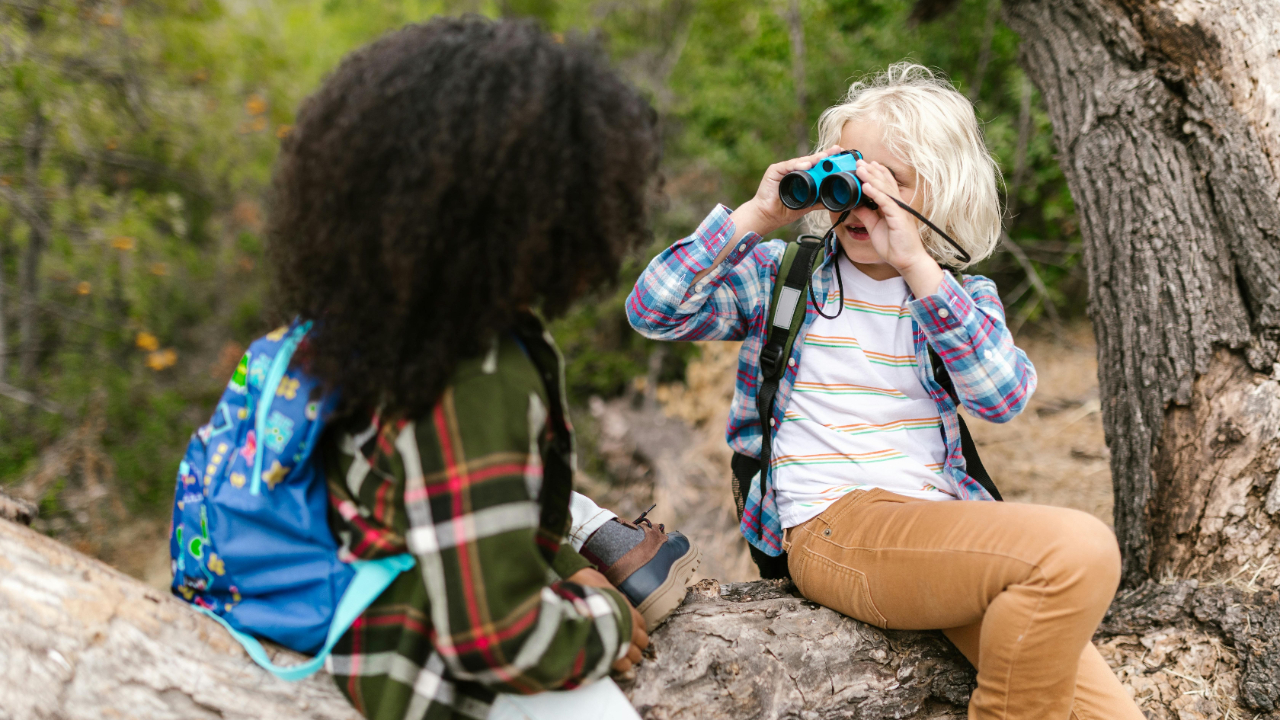
What should parents look for when looking at forest schools for their children?
Jan 10, 2025As parents, we all want the best for our children—opportunities to learn, grow, and thrive in a safe yet stimulating environment. But when the idea of "risky play" comes up, it’s natural for concerns to arise. What if my child gets hurt? Is climbing trees or lighting a campfire really safe? These are common questions, and we’re here to help answer them.
In the new episode of the For All Stages and Ages podcast, we dive into the fascinating world of Forest School with Alison, an experienced practitioner passionate about the transformative power of outdoor learning. Forest School provides a unique environment where children can connect with nature, develop resilience, and foster independence through activities that might seem risky at first glance but are carefully structured to be safe and enriching.
What is Forest School, and Why is it Valuable?
Forest School is more than just outdoor play—it’s a holistic approach to education that prioritizes child-led exploration and experiential learning. Activities like building dens, using tools, and exploring woodlands are not only fun but also teach critical life skills, from teamwork to problem-solving. Research shows that spending time outdoors improves mental health, boosts creativity, and enhances cognitive development.
Addressing Common Concerns About Risky Play
One of the most rewarding aspects of Forest School is its emphasis on managed risk. Alison shares how activities are carefully planned to balance safety with opportunities for growth. Children learn how to assess risks themselves, under the watchful eye of trained instructors. For example:
-
Climbing Trees: This teaches coordination, risk assessment, and confidence. Forest School leaders guide children in understanding which branches are safe and how to climb responsibly.
-
Using Tools: Handling tools like knives for whittling fosters focus, fine motor skills, and a sense of achievement, all while adhering to strict safety protocols.
-
Campfires: Building and managing a fire teaches respect for nature and safety procedures while creating a space for collaboration and storytelling.
Dispelling the Myths
Parents often worry that Forest School might be too dangerous, but Alison explains how these fears can be alleviated through education and communication. By involving parents in the process and demonstrating the precautions taken, Forest School builds trust and highlights the long-term benefits of these activities.
The Power of Nature in Shaping Our Children’s Futures
In a world dominated by screens, Forest School offers a much-needed connection to the natural world. Children learn to appreciate the environment, develop resilience, and build confidence in their abilities. These experiences are invaluable, creating well-rounded individuals who are ready to face challenges with a sense of curiosity and adventure.
Listen to the Full Conversation
Want to learn more about how Forest School can benefit your child and gain insights into managing concerns about risky play? Tune into the episode of the For All Stages and Ages podcast. Alison shares her wealth of experience and addresses all your questions about safety, learning, and the magic of outdoor education.
Listen to the full episode now.
Stay connected with news and updates!
Join our mailing list to receive the latest news and updates from our team.
Don't worry, your information will not be shared.
We hate SPAM. We will never sell your information, for any reason.

